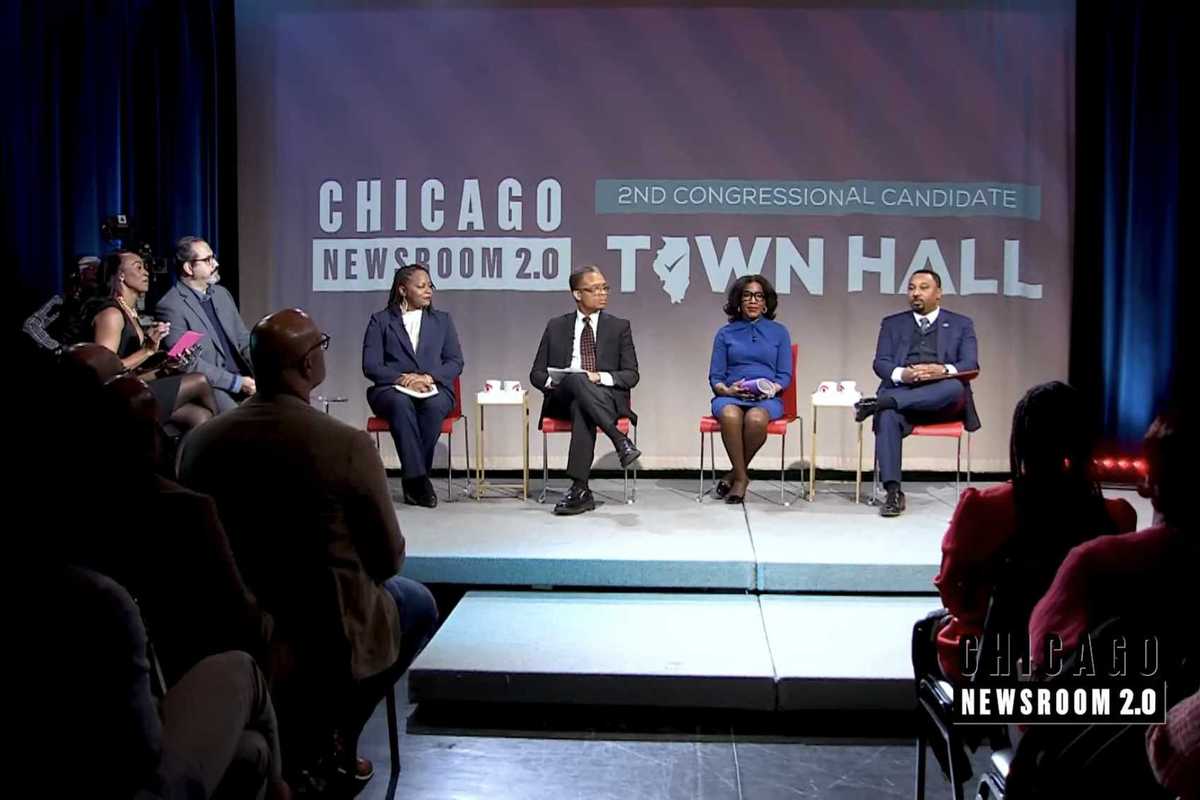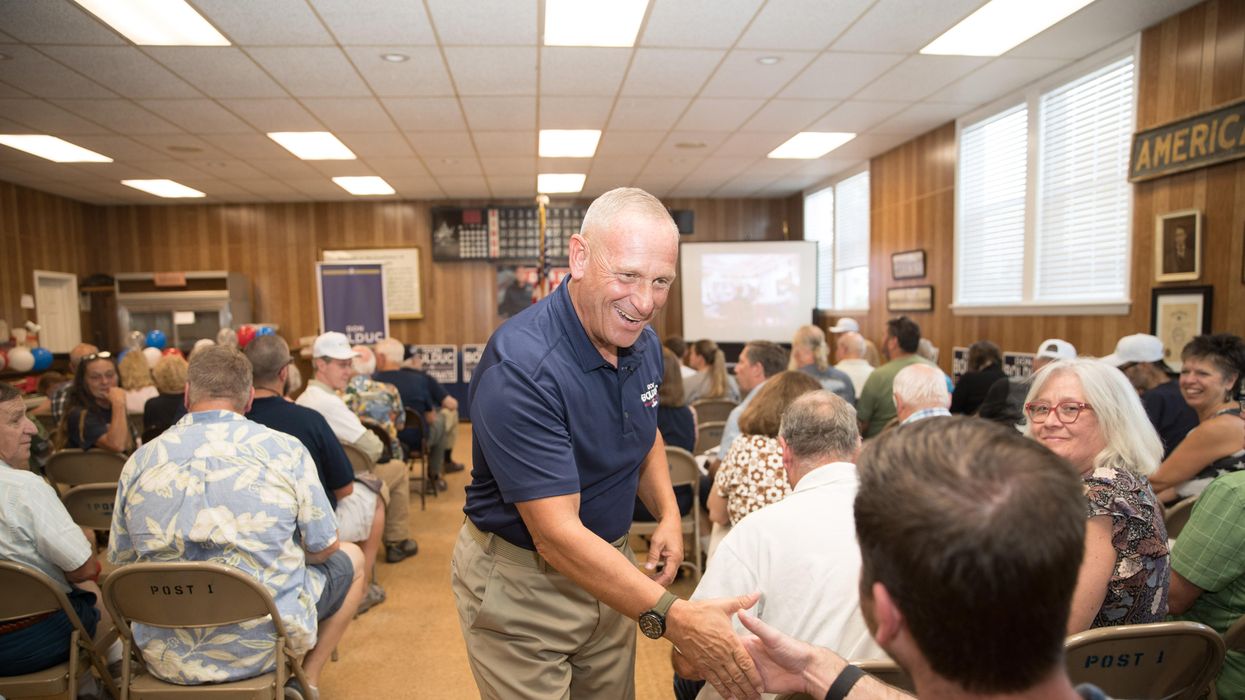Primary season ends Tuesday, with three of the smallest states in the nation selecting their candidates for the Nov. 8 general election.
Texas, one of the nation’s biggest states, held the year’s first primary March 1. And now Delaware, New Hampshire and Rhode Island are the final states to hold primary elections, and each features multiple competitive nominating contests for state and federal offices.
Both New Hampshire and Rhode Island feature gubernatorial primaries, although the biggest Granite State contest is the Republican Senate primary. In Delaware, the highest profile primaries will determine the candidates for attorney general and the state’s only seat in the House of Representatives. New Hampshire and Rhode Island also feature competitive congressional primaries that could help determine control of the House next year.
(Technically, Louisiana holds an all-party primary on Election Day. Any candidate who gets a majority of the vote is declared the winner of the general election. If no candidate for an office reaches that threshold, a runoff will be held in December.)
Delaware
In an odd quirk, voters in the nation’s first state are among the last to choose their nominees. And they won’t have much to do at their polling locations, with just one senior statewide position (auditor of accounts), a handful of seats in the General Assembly and assorted other contests on the primary ballot.
Most of the statewide and legislative races do not require primaries, with unopposed candidates already looking ahead to the Nov. 8 general election. That includes the race for Delaware’s lone seat in the House of Representatives. Rep. Lisa Blunt Rochester, a Democrat, is seeking reelection and is being challenged by Republican Lee Murphy and two other candidates.
The highest state office up for grabs is the attorney general post, but the candidatesfor that job, along with state treasurer, have already been decided. Democratic voters will get to decide between incumbent Kathleen McGuiness and attorney Lydia York to be their nominees for auditor of accounts. McGuiness, the incumbent, was convicted this summer of official misconduct after hiring her daughter for a part-time position. Gov. John Carney is expected to force her from office after she is sentenced, but she is still hoping to be elected to another term.
The winner will face Republican Janice Lorrah.
Delaware, where Democrats are fully in control of state politics, has made a number of changes to its election rules in recent years.
Lawmakers and Carney enacted two election laws this year. One established same-day registrations, allowing people to sign up to vote on Election Day. That law also extended the return date for applications to vote by mail. The second established no-excuse absentee voting for general elections, non-presidential primaries and some special elections, making permanent a temporary rule created in 2020, at the height of the Covid-19 pandemic. Now, anyone in Delaware can vote by mail.
In 2021, the state mandated switching its automatic voter registration system from optional to mandatory, so anyone doing business with the Department of Motor Vehicles will be added to the voter rolls when showing proof of citizenship or reporting a name or address change. In addition the Elections Commission may authorize other state agencies to offer AVR services. These changes go into effect by June 2024.
In 2019, the state created an in-person voting option that went into effect this year, allowing voters to cast their ballots at least 10 days prior to an election date. It also requires each county to offer at least one polling location.
Read more about election law changes in Delaware.
New Hampshire
The most high-profile contests in New Hampshire are the primary races to challenge three Democratic congressional incumbents.
Sen. Maggie Hassan, Rep. Chris Pappas and Rep. Annie Kuster are all seeking reelection this year and are waiting to see who emerges from the Republican primaries.
Had Gov. Chris Sununu listened to Republican entreaties and entered the race to challenge Hassan, he likely could have flipped the seat. Instead, he is seeking reelection, leaving the field to retired Army Brig. Gen. Don Bolduc and state Senate President Chuck Morse. Bolduc has echoed former President Donald Trump’s unfounded claims of election fraud in the 2020 presidential race; Morse has been endorsed by Sununu. Recent polling shows Bolduc ahead. Other polling shows Hassan with a slight edge over either candidate.
In Pappas’ competitive 1st district, the leading GOP contenders are a pair of one-time Trump White House aides: Karoline Leavitt and Matt Mowers. Other contenders include state Rep. Tom Baxter, businessman Mark Kilbane, state Sen. Russell Prescott and former TV news reporter Gail Huff Brown. She is married to former Massachusetts Sen. Scott Brown, who later lost a Senate campaign in New Hampshire.
Kuster represents a somewhat safer 2nd district, but Republican candidates are hoping to ride a red wave to victory. Polling generally shows Keene Mayor George Hansel and former Hillsborough County Treasurer Robert Burns leading, but with many voters undecided. Democrats have been elevating Burns, believing he would be the weaker nominee against Kuster.
Sununu is expected to easily win his primary, and then defeat state Sen. Tom Sherman, who is running unopposed for the Democratic nomination.
It has been a busy few years for people watching election law activity in New Hampshire.
One law passed in 2021 expanded absentee voting to allow people incarcerated for a misdemeanor or awaiting trial to vote by absentee ballot.
A July 2021 law also instituted a number of rule requirements for maintaining the state voter list, including: comparing death records and voter registration lists, directing motor vehicle officials to share address changes with municipalities, and taking additional steps to ensure people with the same place and date of birth are actually unique voters.
Another 2021 law specifies that if the For the People Act becomes federal law, New Hampshire will continue to follow its state laws and not the new federal rules.
The six laws enacted this year include:
- Enhanced voter ID requirements, making New Hampshire one of the few states that do not offer an alternative for people who cannot produce a photo ID.
- New penalties for election crimes and increased investigations of potential crimes.
- Updated rules for positioning challengers who want to observe the counting of ballots.
- A requirement that high schools include voter registration information in the development of plans for students with disabilities.
Read more about election law changes in New Hampshire.
Rhode Island
The smallest state has an unusual gubernatorial primary on its hands, with the Democratic incumbent in a tough fight for another term.
However, Gov. Dan McKee was not elected to the job last time around. He had been lieutenant governor and succeeded Gina Raimondo when President Biden appointed her secretary of commerce. Now McKee wants a full term but first needs to get past Rhode Island Secretary of State Nellie Gorbea, ex-CVS Health executive Helena Foulkes and former Secretary of State Matt Brown.
Polling conducted over the summer showed a tight race between McKee and Gorbea with Foulkes running third. Whichever candidate earns the nomination will be favored over either of the business owners running in the GOP primary, Ashley Kalus and Jonathan Riccitelli.
One step down the ballot, Lt. Gov. Sabina Matos is seeking the Democratic nomination for her own full term, after replacing McKee. She faces two other candidates. Two Republicans are vying for a spot on the November ballot.
Rhode Island has two seats in the House of Representatives, but only the safely Democratic 2nd district has a competitive primary. With Rep. Jim Langevin retiring, five people are seeking the party’s nomination but state General Treasurer Seth Magaziner is the favorite. Other contenders include former state Rep. David Segal and former Commerce Department attorney Sarah Morgenthau.
The winner will be a heavy favorite over Cranton Mayor Allan Fung, the lone Republican in the race.
Like New Hampshire, Rhode Island has made many changes to its elections laws since 2019, although some have been minor updates to existing policies.
In 2019, the state made a significant change to its primary elections by allowing people unaffiliated with a political party to cast a primary ballot. That same year, Rhode Island determined that a voter may use certain unexpired IDs in order to cast a ballot and extended deadlines for overseas military and civilian voters to submit absentee ballots.
Rhode Island has enacted seven election laws this year. The most significant eliminated the excuse requirements for voting by mail. That law also allows people to request ballots online, requires the use of drop boxes, and ends the witness requirement for mail ballots and ballot applications.




















